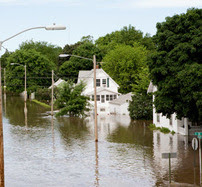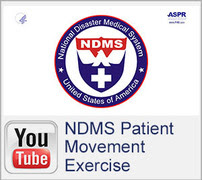Related: Attorney Greg Loarie discusses Earthjustice’s litigation to get the pesticide sulfoxaflor off the market, due to threats it poses to honeybees.
Monthly Archives: August 2016
Mind games: Keep your memory fit
 |
|
If you continue to exercise your brain, you’ll have a better chance of retaining healthy brain function as you age.
|
From Flint to Flooding to Zika: Protecting Disaster Health
HHS calls on center for innovation to accelerate Zika vaccine developmentRight now, there is no vaccine to protect people from Zika. HHS is working to change that. Today, HHS announced that it is working with one of its Centers for Innovation in Advanced Development and Manufacturing (CIADM) to quickly develop a Zika vaccine. To help develop the vaccine more quickly, the CIADM will use vaccine technology similar to that used in vaccines for similar viruses, such as Dengue. Learn More >> |
 |
HHS moves to boost Zika vaccine capacity in BrazilTo help Brazil develop a vaccine to protect people from Zika virus infection, HHS will join the World Health Organization (WHO) and international public health groups in providing funding and technical assistance to Brazil’s Butantan Institute, a biomedical research center and Brazilian government partner. Learn More >> |
 |
After the Storm: Cleaning up from floodingThis week, historic floods have struck many parts of the country, from West Virginia to California. Floods are the #1 distaster in the United States, according the FEMA. Whether or not a flood has struck your home this week, it makes sense for everyone to learn the basics of how to recover from a flood and what to think about. Take a few minutes to learn answers to questions like “how do I clean up?” and “can I eat that?” Learn More >> |
 |
Parents and Partners are Helping Shape Brighter Futures for Flint’s Children Despite Exposure to LeadA healthy diet, early education, and assistance programs can help children in Flint thrive, but a recent report indicates that some children may need help reaching those goals. If you think that your child may have been exposed to lead – in Flint or elsewhere – learn how parents and partners can work together to shape brighter futures. Learn More >> |
 |
Watch, Listen and Learn: Moving Patients when Disaster StrikesWhen disaster strikes, patients may need to be moved out of state to get the care that they need. Making sure that all of the partners at the federal, state and local levels are ready to act at a moment’s notice to protect health and save lives takes coordination and training. Get an insiders look at one of those training exercises and learn how these responders get ready to respond when seconds count. Learn More >> |
 |
the middle passage
U.S. Dept. of Health & Human Services
After the Flood: Mold-Specific Resources
Floods are the most common and widespread of all weather-related natural disasters, according to NOAA. Whether your community is cleaning up from the current flooding in Louisiana or you want to be ready in case a flood strikes your area, take a few minutes to learn about preventing, identifying, and getting rid of mold. Learn More >>
HHS funds development of Zika diagnostic test for use in doctors’ offices
Today, ASPR announced that it would support the development of a rapid Zika diagnostic test. If approved, the test could be given right in your healthcare provider’s office and results could be available in 30 minutes. Many people who are infected with Zika never know that they have the disease. Better diagnostics would give doctors and other healthcare providers the information they need to guide clinical management. Learn More >>
News in Pictures: Images of the Medical Response to the Flooding in Louisiana
In the wake of the historic floods that have spread throughout Louisiana, ASPR has responded by sending medical professionals from the National Disaster Medical System to provide medical support. The Assistant Secretary for Preparedness and Response also traveled to Louisiana to meet with senior officials from the Louisiana Department of Health and talk to survivors in shelters. Check out their stories in pictures. View the Album >>
Investigation: Pre-October 2015 Flint Water, Sourced from Flint River, Might Have Caused Rashes, Other Irritant Conditions
People in Flint have been worried about rashes for a long time. On February 25, 2016, the Michigan Department of Health and Human Services requested support from the CDC Agency for Toxic Substances and Disease Registries for this investigation. The investigation found that there may be several causes of the rashes, and, at one time, the water may have caused rashes, but that the water does not currently contain substances that would cause a rash. Learn More >>










You must be logged in to post a comment.